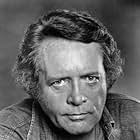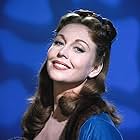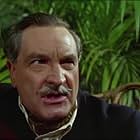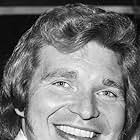IMDb RATING
7.9/10
1.4K
YOUR RATING
John Drake is a special operative for NATO, specializing in security assignments against any subversive element which threatened world peace.John Drake is a special operative for NATO, specializing in security assignments against any subversive element which threatened world peace.John Drake is a special operative for NATO, specializing in security assignments against any subversive element which threatened world peace.
Browse episodes
Storyline
Did you know
- TriviaIn this early series, the character of John Drake is clearly defined as being an American. When the character returned for the second Secret Agent (1964) series, the character had become either British or Irish (exactly which was never settled upon definitively).
- Quotes
John Drake: [Opening titles narration] Every government has its Secret Service branch: America, CIA; France, Deuxieme Bureau; England, MI5. NATO also has its own. A messy job? Well that's when they usually call on me, or someone like me. Oh yes: my name is Drake. John Drake.
- Crazy credits"Introducing Patrick McGoohan."
- Alternate versionsIt has been reported that a foreign (non-UK) syndicated version of this series incorporated the American "Secret Agent Man" opening credits used for the later series "Danger Man" (1964), thereby tying the two series together. This has yet to be confirmed.
- ConnectionsFeatured in Six Into One: The Prisoner File (1984)
Featured review
There are so many things Ralph Smart got right in the earliest Danger Man, it's almost a pity he couldn't stick to the commercially problematic 30-minute format. The stories are taut, clever Cold War mystery-thrillers. Within the hurried time constraints it isn't all plot as Smart finds room for characterization and texture, even to interject some interesting ideas and questions. A lot of this is done by way of the mercurial Patrick McGoohan but Smart had no shortage of talented collaborators in directors and actors.
McGoohan's early performances are fluid yet quirky. While he projects a kind of reserved elan, he also draws on a trove of itchy, improvisational mannerisms that allow us into more than a few nooks--not all of them pleasant--of John Drake's anxious cynicism. (McGoohan is to the TV spook what the late Jeremy Brett was to Sherlock Holmes: a perturbable, high-strung exotic, haunted but smirking.) I prefer him here to the more celebrated Prisoner, in fact, where he's customarily arch and lacks the variety of situation and emotional register. His narration is another treat, delivered in one of the most delectably ironic voices in dramatic TV history.
The writing bests most on TV, then or now. The tone in the better scripts is wry, veering toward acid, with more than a hint of melancholy. This is not the Cold War as a stage for Kennedyesque moxie, and certainly not the idiotic glamorization found in Bond, but rather as in Le Carré, a stage for the peeling away of deceptions that are as likely to originate at home as in dens abroad. This is not to say it isn't above the occasional stereotype; see, for instance, the leering North Koreans in the episode The Honeymooners. But a mark of this generally very humane work is that it more typically treats nationalistic conceptions of the enemy with skepticism, and even pits Drake in frustration against his own morally ambiguous NATO bosses. Nor is the day always won, and some seeming victories prove Pyhrric. How refreshing this is to watch in 2007, for obvious reasons.
The production design, fairly cheapo and simplistic, never detracts (charmingly, old file inserts make do for exterior locations) and in fact the studio sets somehow hold surprise delights: here a gloomy early 60s facsimile of a Munich street recalling Carol Reed's chiaroscuro in The Third Man, there the lobby of an International Style hotel with its sexy mid-century modernism. That it's all in gorgeous high-contrast black and white only deepens the interest: shadow play for shadowy deeds.
A word too about the memorable score by Albert Elms, particularly his incidental music. The understated jazz is part and parcel of the sensibility here--aloof and insinuating. There is so much intelligence pulsing through Elms' music and the series as a whole that it seems vaguely unlikely; watching this work, I can't help but admire its virtues while ruing what's become of the medium.
Danger Man in this early incarnation is grown-up art on TV, the likes of which in the U.S., anyway, we rarely hope to find today outside of HBO, practically its last refuge. A treasure.
McGoohan's early performances are fluid yet quirky. While he projects a kind of reserved elan, he also draws on a trove of itchy, improvisational mannerisms that allow us into more than a few nooks--not all of them pleasant--of John Drake's anxious cynicism. (McGoohan is to the TV spook what the late Jeremy Brett was to Sherlock Holmes: a perturbable, high-strung exotic, haunted but smirking.) I prefer him here to the more celebrated Prisoner, in fact, where he's customarily arch and lacks the variety of situation and emotional register. His narration is another treat, delivered in one of the most delectably ironic voices in dramatic TV history.
The writing bests most on TV, then or now. The tone in the better scripts is wry, veering toward acid, with more than a hint of melancholy. This is not the Cold War as a stage for Kennedyesque moxie, and certainly not the idiotic glamorization found in Bond, but rather as in Le Carré, a stage for the peeling away of deceptions that are as likely to originate at home as in dens abroad. This is not to say it isn't above the occasional stereotype; see, for instance, the leering North Koreans in the episode The Honeymooners. But a mark of this generally very humane work is that it more typically treats nationalistic conceptions of the enemy with skepticism, and even pits Drake in frustration against his own morally ambiguous NATO bosses. Nor is the day always won, and some seeming victories prove Pyhrric. How refreshing this is to watch in 2007, for obvious reasons.
The production design, fairly cheapo and simplistic, never detracts (charmingly, old file inserts make do for exterior locations) and in fact the studio sets somehow hold surprise delights: here a gloomy early 60s facsimile of a Munich street recalling Carol Reed's chiaroscuro in The Third Man, there the lobby of an International Style hotel with its sexy mid-century modernism. That it's all in gorgeous high-contrast black and white only deepens the interest: shadow play for shadowy deeds.
A word too about the memorable score by Albert Elms, particularly his incidental music. The understated jazz is part and parcel of the sensibility here--aloof and insinuating. There is so much intelligence pulsing through Elms' music and the series as a whole that it seems vaguely unlikely; watching this work, I can't help but admire its virtues while ruing what's become of the medium.
Danger Man in this early incarnation is grown-up art on TV, the likes of which in the U.S., anyway, we rarely hope to find today outside of HBO, practically its last refuge. A treasure.
Details
- Release date
- Country of origin
- Official site
- Language
- Also known as
- Geheimauftrag für John Drake
- Filming locations
- Production company
- See more company credits at IMDbPro
- Runtime24 minutes
- Color
- Aspect ratio
- 1.33 : 1
Contribute to this page
Suggest an edit or add missing content
































